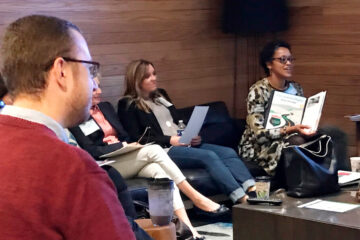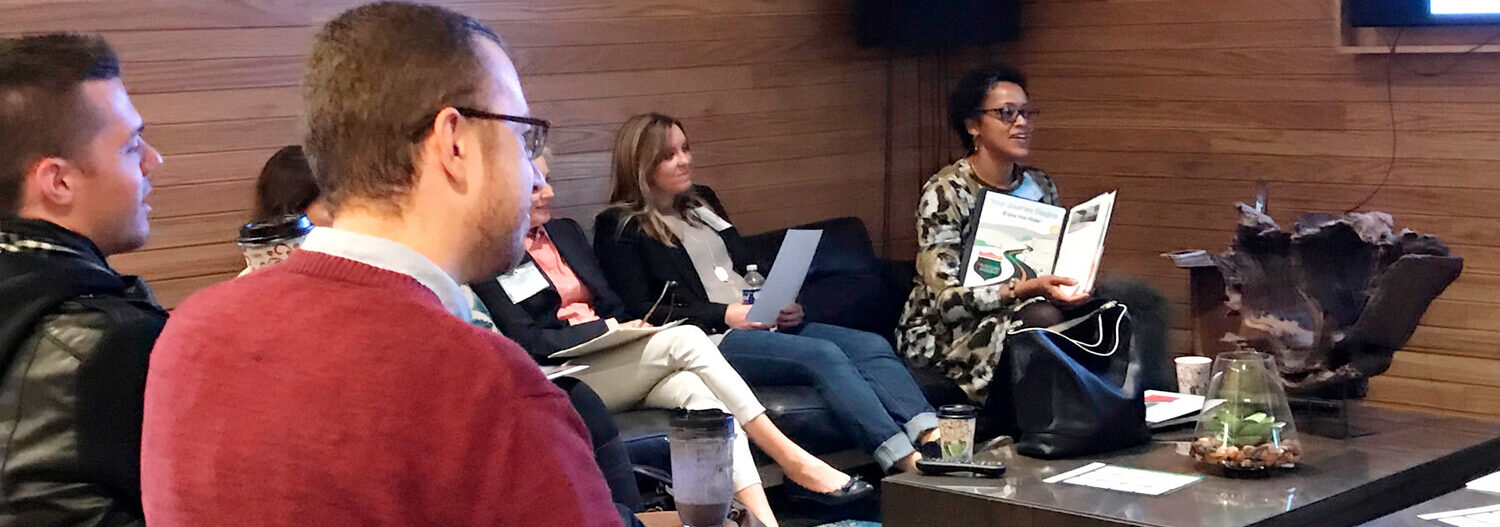Periodically we gather a group of senior HR leaders, each one grappling with the impact of significant disruptors in their field, each one curious about ideas and options and solutions that could assist in creatively addressing them. Our open discussion format encourages the sharing of successes and challenges. See below for a quick snapshot of the direction these discussions have taken.
As the paradigms we work within continue to be shaken and rattled, such as hierarchical mindsets and silos, human resources leadership seeks a new lens for connecting dots and solving challenges as they emerge. In what priority order would you put this list of a dozen disruptors?
- Modern learning becomes more blended – with micro bite-sized offerings. (Clearwater is currently beta testing a brand new topic around “Managing Up” – stay tuned – we’ll share the insights in a later blog.)
- Coaching skills are in demand, but in short supply. Of the 10 most recent requests we have received for leadership support, over half of them involved coaching in some capacity – direct one-on-one coaching of executives, or, more broadly, implementing coaching skills workshops and practice across a complete level or two of leaders in the organization.
- Daily feedback is replacing performance management systems – but not in a vacuum. To quote Bersin/Deloitte, “We are not talking about doing away with ratings, rather we are talking about building a new, ongoing process for goal setting, coaching, evaluation, and feedback.” (Forbes.com) The operative word here is “ongoing.”
- Organizational structures are out of alignment and don’t support new business imperatives. When systems can’t talk to each other; when one functional area is uber focused on its own goals without being tied to an enterprise view, mis-alignment disrupts creativity and productivity.
- Hierarchical view gives way to the enterprise perspective.
- Employee engagement gives way to the employee experience: recruitment, on-boarding, and development need to become seamless.
- Data is king, but averaging and leveraging the findings for strategy and direction is harder.
- New innovative platforms for talent management, learning and recruiting are exploding.
- A new view on diversity is required to create global cultures of inclusion for more effective interactions and greater bottom line results.
- Work life “well-being” becomes essential for talent retention.
- Teams rule but remain dysfunctional, especially at the cross-functional level – the expansion of the organizational matrix and greater fluidity of team membership.
- Change is rapid, accelerating and constant and CEOs want HR co-leading the effort.
Several of the “disruptors” are clearly interwoven: recruitment, feedback, engagement, talent management, team dynamics, particularly those that are more fluid and cross-functional. As an increasing number of companies and industries question the value of the annual performance review, pioneers are testing the waters with ongoing feedback.
Very quickly the conversation shifts from what metric are you using to how are you engaging and empowering the workforce to participate in this new method and mindset. This continues to be hot topic among our clients – one company is in the midst of switching to ongoing “performance enablement” conversations and another company is exploring a model for seeking and giving feedback in all directions – up, across and down the organization.
In reality, all of these are “change initiatives” which require not only great communication strategies, but also an appreciation of what it takes to shift our beliefs about performance, engagement, training, and hierarchy.
Share with us the disruptors you are most inclined to be paying attention to at this point in time and how you are dealing with them.
Are a you Senior HR executive based in Atlanta, GA? Contact us at 404-634-4332 or by clicking the button below to learn more about our upcoming Senior HR & Business Leaders forums.


